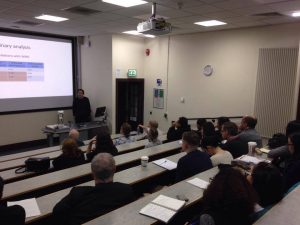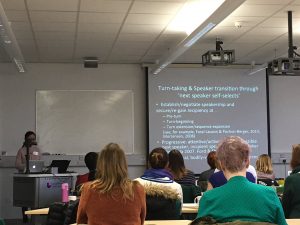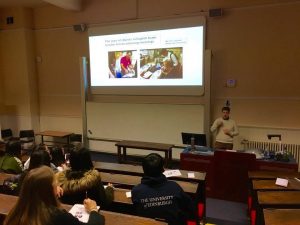I recently attended a conference entitled ‘Interactional Competencies and Practices in a Second Language’ (ICOP-L2) at the University of Neuchatel, Switzerland. Attending this conference were around eighty social interaction researchers from across the globe; experienced researchers, early career researchers and postgraduate students. Fortunately, I was able to attend due to the support of the School Conference Fund. Being able to get to this conference was a hugely beneficial experience in a number of ways.
As an early career researcher, completing my doctorate in 2014, I am still hugely excited to attend talks given by some of the figures who have inspired me over the years. The prospect of presenting in front of such figures really too really pushed me, and my colleague Dr Adam Brandt, to do our very best work. A little pressure goes a long way! Our talk, entitled ‘Students problematizing advice in L2 support tutorials at a British university: opportunities for explicit socialization’, was attended by around twenty people. It went very well and I had some excellent feedback and identified a few issues to develop further as I turn this talk into a paper.
This conference was a great opportunity to connect with the broader community of social interaction researchers. I had the chance to see the huge variety of research projects being undertaken by researchers of varying levels of experience. I attended a talk given by of my own doctoral supervises Nur Binti Abdullah. Nur’s presentation went extremely well, I am sure she will take a lot of encouragement.
I also had the chance to meet with my former ‘boss’ Professor Tim Greer from Kobe University, Japan. Before becoming a full time member of staff at Newcastle University, I did a postdoc in Japan with Professor Greer. Aside from catching up with a good friend it was really useful to meet in person to discuss various ongoing research projects and to plot a few more!”
Written by Dr Chris Leyland, Lecturer in Applied Linguistics at the School of Education, Communication and Language Sciences, Newcastle University.



